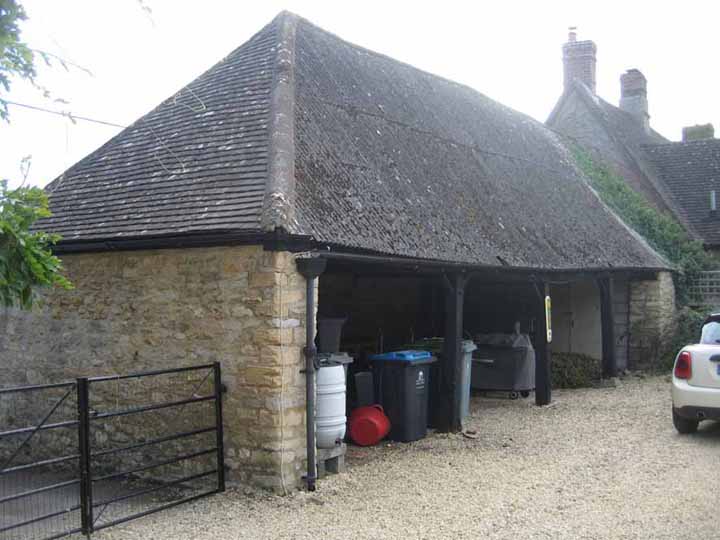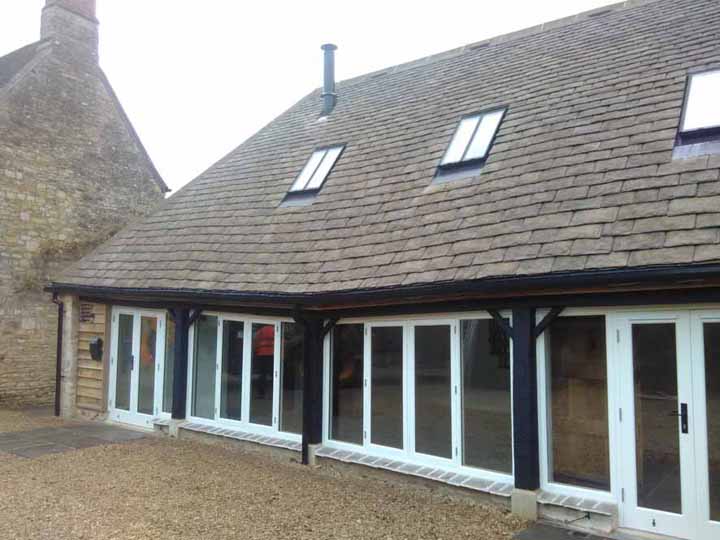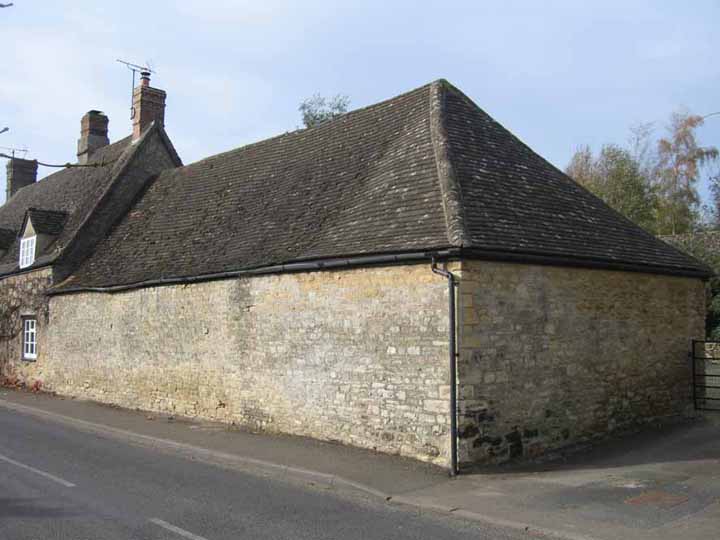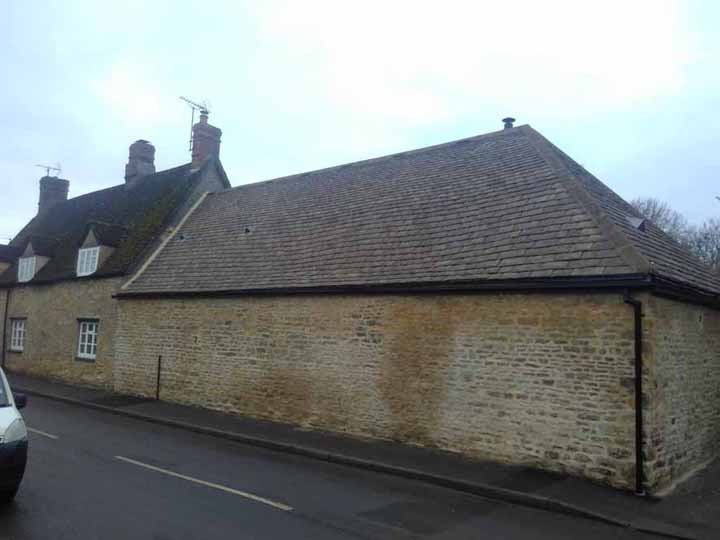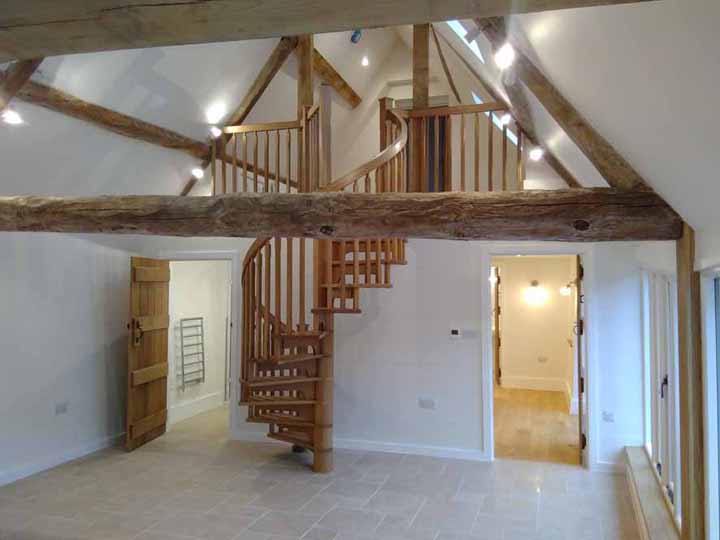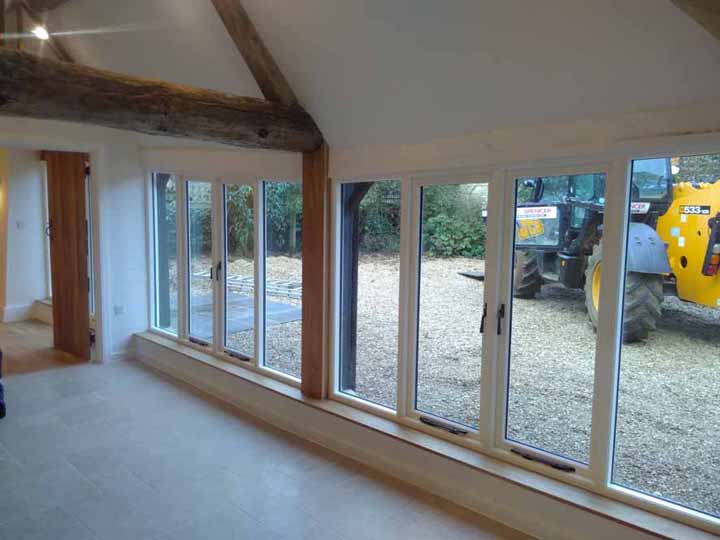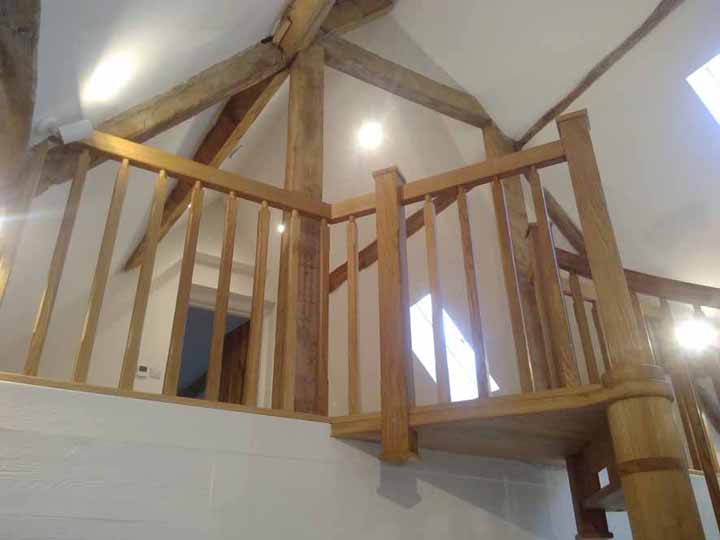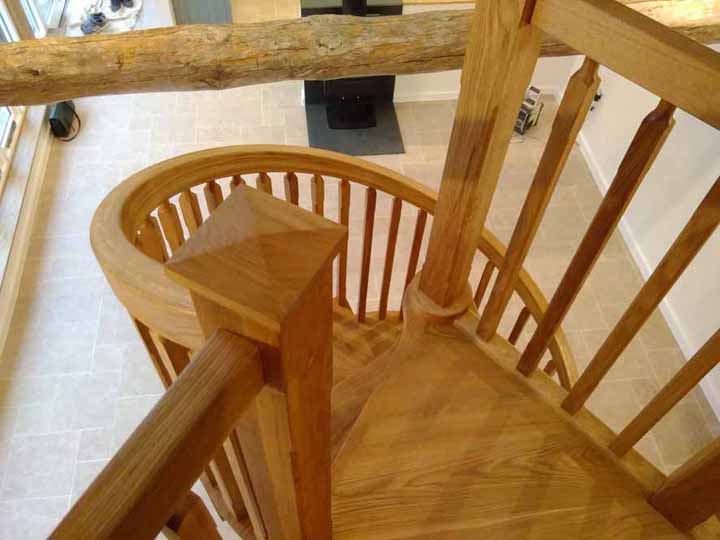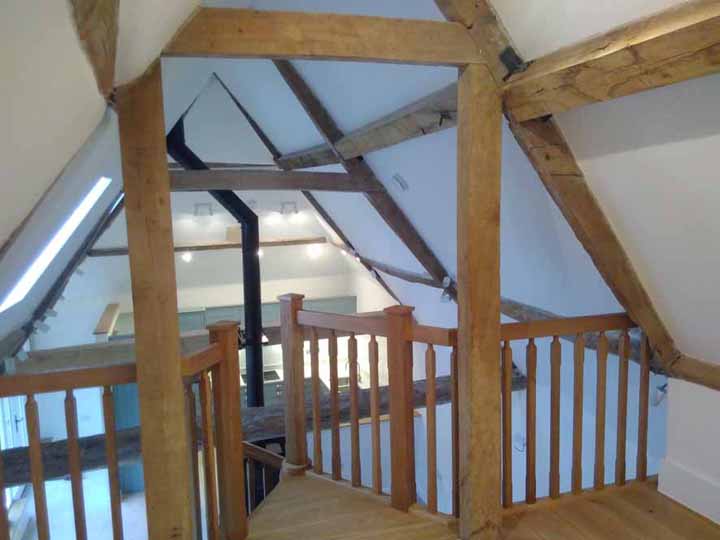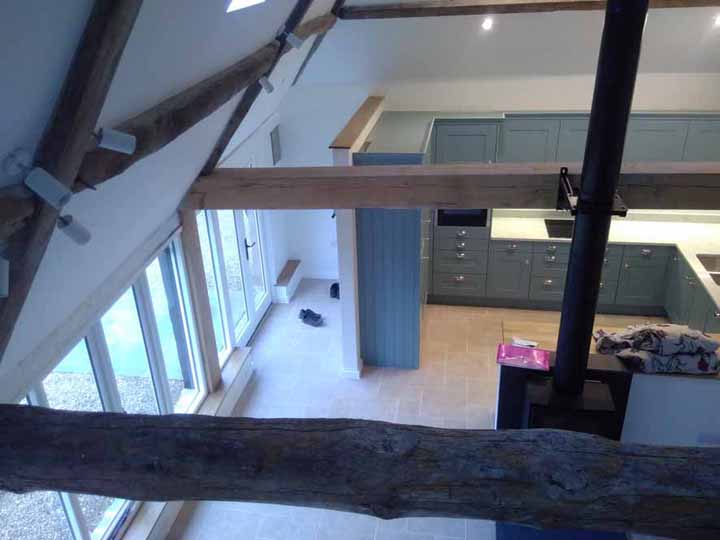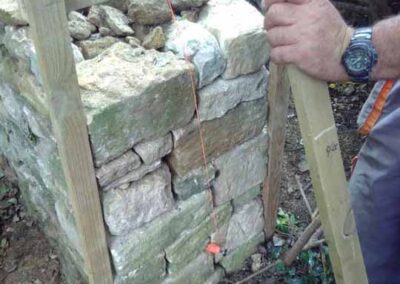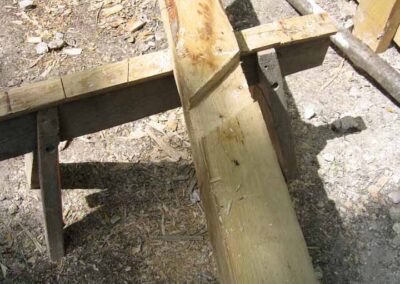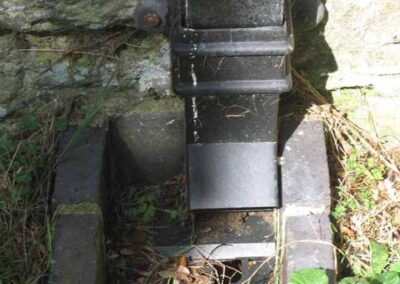Conversion of a historic cartshed to a new dwelling in Oxfordshire
Retro-fit and conservation for sustainable living
The original building was a rather lovely, but fairly dilapidated, open-fronted cartshed, dating probably to the 18th century. While many of its original roof timbers remained, many had been replaced – some with rough repairs in sawn modern timber, some in fine oak. Half the roof was finished with concrete tile, the other half with asbestos cement. The front wall, formed of local limestone laid in earth mortar, bowed considerably outwards.
Manifest were commissioned to carry out the full conservation of the structure, and its conversion to a new and habitable dwelling. Our plans retain the open, barn-like atmosphere with exposed tie-beams crossing the space, the sloping ceiling articulated with protruding purlins and principal rafters. A new mezzanine at one end, extending the old storage area, gives an artist’s gallery and small upstairs bedroom, reached by a fine bespoke timber spiral stair made by British Spirals & Castings.
The ground floor is finished with new stone flags laid over a limecrete floor (with underfloor heating). Walls were finished internally with cork insulation and lime plaster, following the undulating lines of the existing walls. Planning requirements restricted the use of glazing to the existing open front, facing on to the old farmyard, together with some new rooflights in the roof slope above. Our client elected to have bespoke windows made to uneven shapes, following the distorted but stable timber wallplate, lending a thoroughly organic and respectful air to the conversion. Even the bowed wall to the street front was retained, stabilised by a new ring-beam at wallplate level. With a minimal impact on the public realm, thorough use of natural, traditional and breathable materials, and sensitive internal conversions, we are pleased to have formed a new dwelling which sits so comfortably in its village context.
Manifest were pleased to work with R.C. Spencer Building Contractors on this exciting project, with natural insulation materials supplied by Ty Mawr of mid-Wales.

